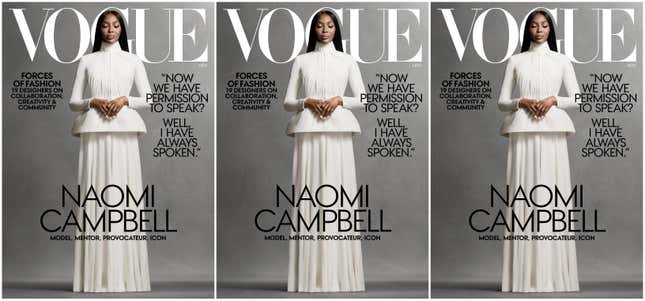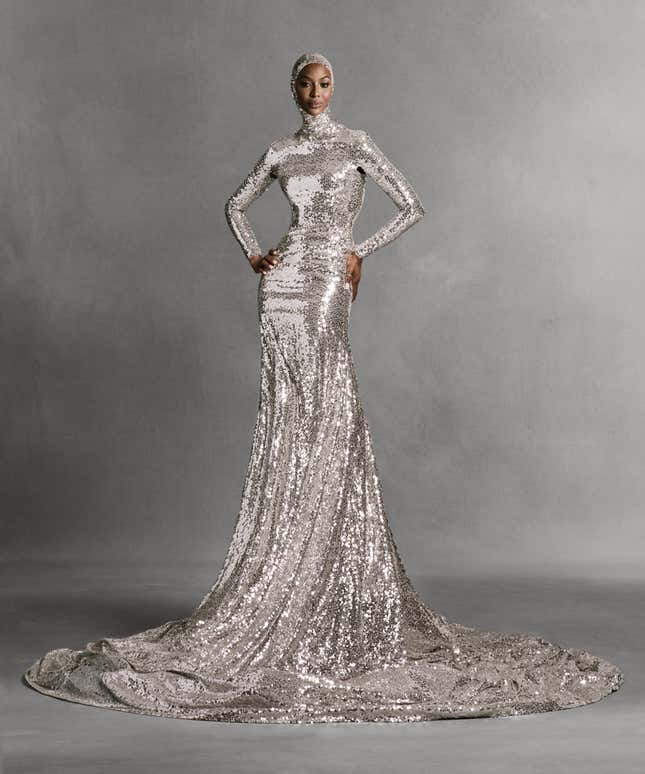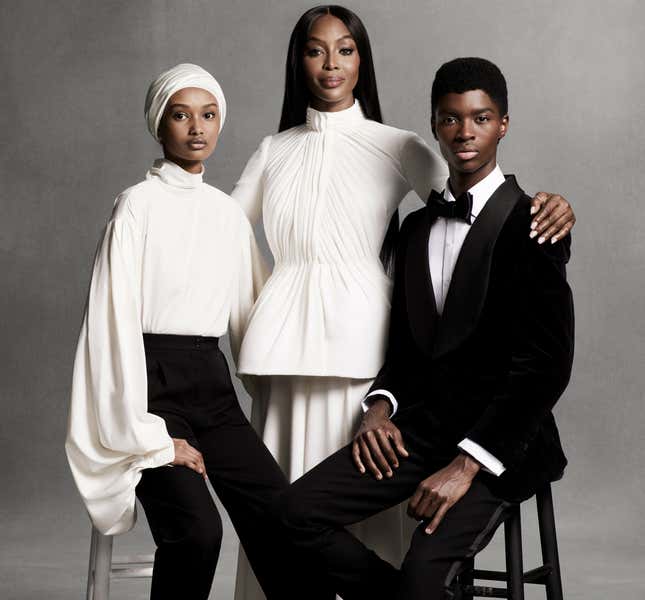
Fashion may be fueled by trends, but Naomi Campbell has never gone out of style. The supermodel shifted the paradigm for beauty when she entered the industry in the mid-’80s, cementing her place in the firmament among fashion’s most famous faces by the early ‘90s. Three decades, countless covers and catwalks, and a few well-publicized controversies later, the still-working Campbell, now 50, is one of the most enduring and revered figures in fashion—and can work a camera or runway better than, well, anyone.
It’s no less than fitting, then, that Campbell is Vogue’s November 2020 cover star, where she is celebrated as not only an iconic model but “a trailblazer, lightning rod, truth-teller, provocateur and—most of all—mentor and mother figure to models the world over,” including recent breakout stars Adut Akech and Ugbad Abdi, according to a release sent to The Glow Up.
“Modeling can be a scary world, and getting support from anyone, let alone the trailblazers, means everything,” says Abdi, one of those lucky protégés. “Ms. Naomi has taken so many models under her wing. I wouldn’t be here if it wasn’t for her being who she is, unapologetically. She is the blueprint.”

For others, she is an ambassador—for Black talent, causes and representation. “I feel like Naomi is one of those people who will just light the candle and let it burn,” Nigerian designer Kenneth Ize says of Campbell, who has personally promoted his eponymous label within the industry. “What she’s done, I couldn’t pay for it! She knows the value of what she is bringing to the table, and that if she supports this brand it’s going to hit the next level. Naomi is an activist—she tries to make sure that everyone is okay.”
For Campbell, it’s simply a facet of coming into herself, rather than primarily focusing on herself (a pivot most of us in or approaching middle age can relate to. “There were a few things that I would do when I was younger that I was told were bad for my race,” she tells British writer Afua Hirsch. “Now the things I do are not just for me anymore. I think more of my culture and my race, as opposed to thinking about just me.”
“Naomi uses her public platform—as we all should—to speak against injustice and inequality,” says Anok Yai, another new star walking in Campbell’s legendary footsteps.

And like her friend and fellow Black Brit Steve McQueen, who recently lamented the unrealistic expectations placed on Black creators while they are largely ignored as influencers of British culture, Campbell readily addresses the “racism problem” on both sides of the Atlantic.
“I’d rather have racism be right in front of my face and know what I’m dealing with than to have it suppressed,” she says. “No disrespect to the country I was born in, but we need to dig it up and bring it up and deal with it. No more chucking it down the sides.”
So, as another election looms in American and ongoing racial reckoning on both shores (as well as elsewhere throughout the world, most notably, Nigeria), does the woman who helped change the face of the modeling industry—and continues to push it to further expand—believe, as so many have stated, that this is, in fact, different?
“I absolutely believe we are going to get the positive outcome we deserve,” she says. “But we have to do our work in making sure we get it. I think reparations are important for the people to really see that this is something that’s been taken seriously.”
Vogue’s November 2020 issue, starring Naomi Campbell, is available on newsstands nationwide on October 27th



